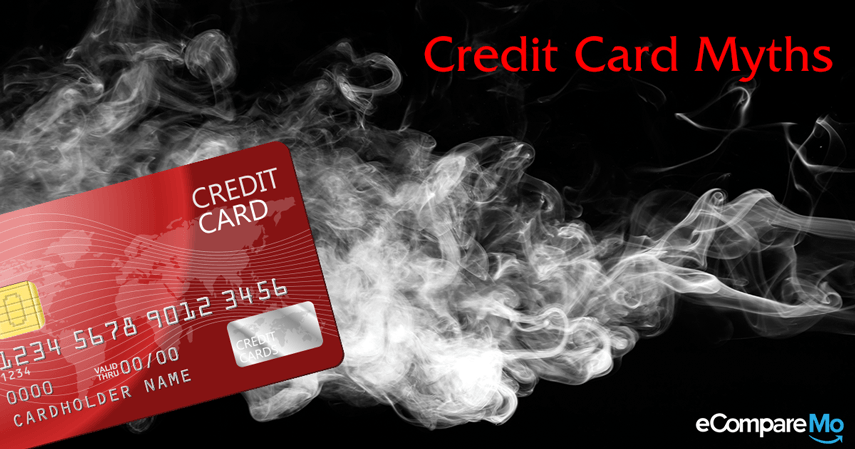Never Fall For The Following Credit Card Myths
2 min readCredit cards can become an indispensable tool when you know how to use it. However, it can become your greatest foe once you start falling into the same traps that snared some people who believe in such myths. To learn more about the prevalent myths and how to counteract them, we listed some of the famous beliefs about credit cards and why they should die out already.

Read: (All Your Burning Questions About Credit Cards, Answered)
Myth: It’s hard to get a credit card without any credit history at all
While having no credit history is better than having a bad one, a zero credit rating can still make the application process an uphill battle. However, it is not an impossible task, as there are ways to increase your odds of approval. One way to make your bid for a credit card more successful is through a cosigner, who will vouch for you and assume financial responsibility in case your account accumulates debt.
Aside from having a cosigner, another method to apply for a credit card if you have no credit history is by gunning for a secured credit card. In this type of card, an applicant must secure his credit line with a deposit account. This means that if a person wants to have a credit limit of PHP 20,000, he has to deposit an amount higher than the limit he wishes to have. Aside from having the convenience of owning a credit card, this option is a good way for people with zero credit history to start building a positive credit score.
Read: (Basic Credit Card Fees You Need To Know)
Myth: To have a good credit score, one must carry a credit card balance every now and then
Unfortunately, this myth only makes cardholders carry the weight the of an unnecessary burden, as it encourages people to deliberately not settle their dues on time. Worse, carrying debt in your credit line does not actually lead to more positive credit scores. Remember, credit reports do not include how much you’re paying every month; what matters to them is how much balance is left on your account, so you might have to think twice before intentionally leaving balance in your account.
Myth: Closing a credit card account will be bad for your financial health
If you have multiple credit cards, it might’ve crossed your mind to cut one line and sever yourself from one credit card. Just keep in mind that whenever you close a credit card account, it will just affect your credit score because of your debt-to-credit ratio increases. Other than a soft impact to your credit score, there are no other effects that will make the cancellation of credit card accounts bad for you. Furthermore, closing a credit card account frees you from a lot of things such as annual fees, interests, and the temptation of using the card even when not necessary.
Myth: Paying off debt can erase it from your credit history
No debt can be erased from your credit history—at least for a couple of years or so. In other cases, some graver negative financial records can even remain there as long as 10 years. Regardless how you settled the said debt, as long as there is a debt accumulated under your name, it will remain there.
Always keep in mind that using your credit card means borrowing money from the card issuer. The greatest trick in using a credit card is knowing when and where to use it.
